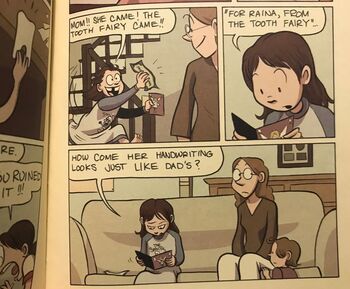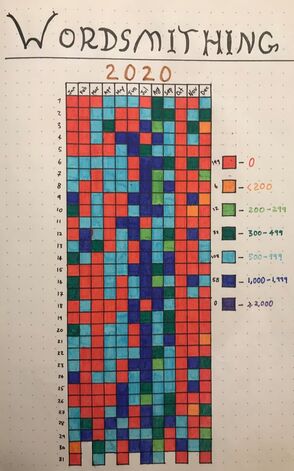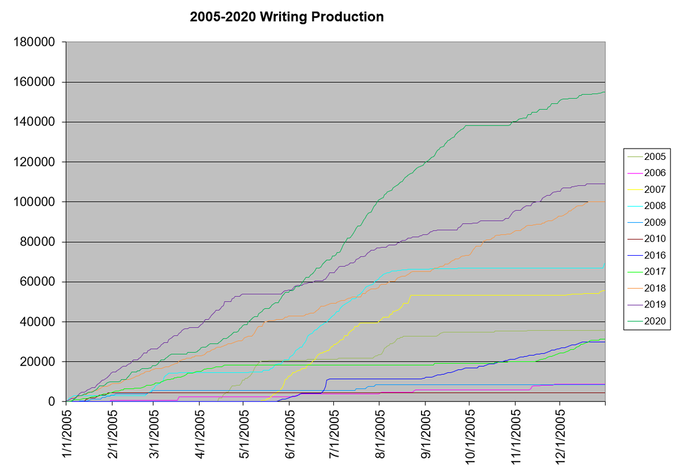Silver Wordsmith: An author's journey |
|
It wasn’t hard for Boro to imagine how things had probably gone down in the galley between when he left and when they received Dr. Sufai’s call. Meeron was born and raised on Bykol, a largely agricultural world near the borders of the Human Interstellar Dominion, and had only moved off-world a few years earlier. Meslina had cut her teeth out of the Academy almost twenty years earlier during the Unification Resistance, when some of Earth’s outermost colonies, particularly the self-sufficient ones including Bykol, rejected the authority of the newly formed ORC – Outer Rim Confederacy, which joined the Humans, Winti and Fusir into a single alliance. Unlikely that Meslina and Meeron ever actually saw any combat on opposite sides of each other, but the tension was still there. Someone looked at someone sideways. Someone probably dropped the word “rockhopper”, used by homeworlders to elicit an image of tiny insignificant rocks even though they were sometimes two or even three times larger than Earth itself. That’s probably when “milkweed” was tossed back. Normally these things could be laughed-out, a sort of competition as to who could take the worst insult without breaking a sweat, but this whole mission was beginning to take its toll.
The complete radio silence that was necessary to keep the ship ghosted had left everyone feeling more alone in the darkness of space than any of them were used to. --- “That’s a lot of time to be flying ghosted,” Surch had said, his mouth hidden behind the brown hand that stroked his trimmed dark beard, when the Forseti’s senior officers were first presented with a flight plan at their mission briefing back on Earth. Admiral Sarita Fan stood by the display, hands clasped in front of her, waiting for the room to process her presentation. Captain Pueson sat at attention, while Meslina had her arms crossed and was leaning back in her chair like Surch. Boro interlaced his fingers and pointed towards the map. “At least there’s the layover at Yshot Station.” “I’m afraid it’s not that kind of layover,” Admiral Fan corrected. “The Station has been made to look mostly decommissioned, and there will be no disembarking. You’ll be flying there light to make good time and then stock up to the brim for the next leg of your journey.” “Yeah, about that, Admiral,” Surch said. “From Yshot Station out beyond the Thorian frontier in what’s basically a straight line? No offence to all you good folks in Intelligence but unless you’ve got someone on the inside steering this, I don’t see how we can stay off the Thorians’ sensors, even when ghosted.” The other woman with Admiral Fan, shorter by a head and with the kind of presence that made Boro forget that she was even in the room, stepped into the light of the wall projection. “Your concerns are perfectly valid, Lieutenant Guraty, but you will have all the help you’ll need.” The Intelligence officer, who thought that introductions were an unnecessary frivolity and therefore didn’t choose to share her name, looked down at her personal terminal. “I have a feeling we’re not going to like this,” Surch said and shifted uneasily in his chair. “Me too,” Meslina added. The display switched to a photo of a now-familiar Thorian face. The three officers of the Forseti groaned, while Captain Pueson sat implacable but for the air escaping through his slightly pursed lips. “If there’s anything you’d like to say,” Captain Pueson said without taking his eyes off the display, “now is likely the only time to do so.” The officers cast each other brief glances, professionalism and outrage vying for control under the surface, but before anyone of them could formulate a coherent sentence, the Intelligence officer continued. “We had been working for quite some time to identify a viable asset. Mikarik may not be the ideal candidate to take down the whole Empire,” the pause and expression on her face suggested that this had been an Intelligence idea of a joke, but the room didn’t budge from its stone-faced stare, “but his experience should serve to be useful on this mission. He spent two decades doing commercial freight including a stint with the Anthar Kai where he also served for a year aboard a pirate hunter. Nearly six years in the Thorian Navy.” “The Navy?” Surch asked with a whistle but the interruption was ignored. “Deserted several years ago during the Nabak Insurrection where he earned two Hard-to-Kill medals – an honour that only a Thorian mind would be twisted enough to cook up for enemy combatants.” That one actually did get a chuckle out of Surch and Meslina. “There’s no place for him left in the Empire, and he’s been doing for-hire work on the borderlands. He knows enough about both commercial and military ship movement across the Empire to be able to plot a course that would keep you ought of sight.” Surch threw a sideways glance at Boro, who was starting to feel a bit unsettled under the Thorian’s digital gaze. “I understand he’s got a colourful resume,” Boro started, “but he’s still a Thorian. Doesn’t their little collective hive mind prevent them for serving other interests?” The Intelligence officer shifted a little and put on a smile. Boro was certain that it was not meant to be friendly. “A ‘hive-mind’ is not exactly how we would describe Thorian collective empathy, and individual Thorians have almost as much capacity to be self-serving as the species itself. That said, it had long been rumoured that there are those among them that are severed from this collective ability to feel the mood of the species. ‘Netkarthi’ is what they’re called in their general parlance, though mostly the concept is dismissed as a bogeyman, either a myth or a figment of foreign propaganda. But regardless of what the Thorians’ official line is, it is our understanding that they do exist, and that Mikarik is one of them. If there’s anyone to rely on for this mission, it’s him, and you can be assured of that.”
0 Comments
 My kids almost got wise because of this page My kids almost got wise because of this page
You know what, as long as it’s still January, I’m allowed to do “Best X of 2020” posts. My house, my rules. That said, it feels weird using the word “best” and “2020” in the same sentence. Very little about 2020 felt good, and I noticed that this December I wasn’t inundated with the Top Countdowns for the year as is normally the custom. My guess is people don’t have the appetite for it, which is understandable. It looks like I didn’t either seeing as how I hardly noticed anything missing. That said, I’ve been doing my Writing and Reading wrap-up posts since I started this blog, and I don’t see the need to skip this year. It’s healthy to reflect on anything good that happened last year, though sometimes it feels like getting blood from a stone. Apropos of that last statement, this has not been a great reading year for me. For one, I lost my prime reading time, which was on my commute to and from work, due to working exclusively from home, which in itself had its own plethora of benefits, but its side effects as well. The other reason being like many people I just wasn’t in the right headspace to pick up a book instead of doomscrolling for a few hours before completely slipping into despair. Nonetheless, there were a few highlights from what I did read last year, so let’s jump into those.
Most Fun Smile by Raina Telgemeier. This was somehow my fourth Telgemeier book even though it was her first bestselling graphic novel, but it also has a special place in my heart, having picked it up for my kids at the airport during a short business trip. Felt like a very on-point dad thing to do – grabbing something for the kids while I’m away. My dad travelled a lot starting around the time when I was my eldest’s age, and he would do the same thing for us as sort of compensation for being away from us for days and occasionally weeks at a time. The book was not ideal for my four year-old but with the six year-old now in kindergarten, the graphic novel hit on a lot of points that have become a part of his life, like teasing, bullying, making friends and changing friends. The endearing art also goes a long way to packaging this coming-of-age work for young minds, and I’ve been catching the eldest flipping through his other Telgemeier books at his leisure. Thanks, but Let’s Not Do This Again Man in the High Castle by Philip K. Dick. I’ve read a bit of Dick before, with A Scanner Darkly being my favourite (it has a fantastic film adaptation as well), and hearing a lot of good things about the television show, I thought I’d check this out. Boy, was this a lesson in setting proper expectations. Let’s just say, even without watching the show, I can tell this is nothing like the show. The Nazi victory in the Second World War is less the driving force of the plot but rather the backdrop for an exploration of colonialism, destiny and hope. It is incredibly slow-paced if one is looking for a big thriller-paced payoff and shies away from really exploring the inherent atrocities of living under Nazi and Imperial Japanese occupation. There’s a lot to like about this book if one focuses on what it is trying to say, and not what you thought it was going to try to say, and the colonialism critique through the eyes of the colonized colonizer alone makes the read worth it. Lesson learned though about judging a book by its adaptation. Honourable Mention I’m Not Sick, I Don’t Need Help! by Xavier Amador. This was part of my research dive for my first novel – a book who’s intended audience is families of those who suffer from schizophrenia with a focus on one of its most insidious symptoms – the inability to tell one is suffering from a mental illness despite all rational signs indicating so. Equal measures informative and heartbreaking, it strengthened my understanding of the disease, but left me with a heavy feeling and a renewed sympathy for those taking care of loved ones suffering from this terrible affliction. 
Most Influential
Good Citizens Need Not Fear by Maria Reva. One of the few times (if not the only time) I’ve ever pre-ordered a book because I was so excited by the prospect of reading it. It happened to arrive at the store just at the turn of the pandemic, which locked it up for a couple of months before I was able to get my hands on it. And when I did finally get a chance to go through it, it was well worth the wait. Not only was this a collection of short stories – the genre that launched my writing and which I still turn to from time to time – but it was also close to my heart in its setting. The series of interconnected stories follow a group of characters who at one point or another reside at a crumbling apartment block in Ukraine in the twilight years of the Soviet Union. It chronicles years I have lived through but was mostly too young to remember, though even for me that time forms an integral term of my early identity – political unrest, long lines for groceries, young parents not knowing what the immediate future will bring. It was a dying nation with a citizenry that had no choice but to live, and Reva’s short story collection captures this perfectly. It also illuminates for me a new perspective that I hadn’t spent enough time considering. As a third, or even fourth, generation Muscovite, there were certain privileges that my family had in the overall hierarchy of the Union, and I had rarely been forced to confront that colonialist reality in the way Reva’s satire made me do. So overall, the book was not only influential on me as a writer but as a person of Russian heritage as well. Honourable Mention Leviathan Wakes by James S. A. Corey (the first book in The Expanse series). I would be remiss if I didn’t mention an audiobook I listened to, mostly because I need to make my assertion that audiobooks are legitimate “reading” and I will fight anyone who suggests otherwise. My approach to this book was completely ass-backwards since I initially watched the first half of the first season of The Expanse and then, abandoned by the friends with whom I’d been watching, turned to the audiobook instead. I’m glad I did, because I’m not embarrassed to admit (that’s a lie, I’m really embarrassed by this) but I need more sci-fi on my reading list. For one, I’ve never had much of a yearning for hard sci-fi. I’ve always been a Star Wars, Babylon 5, Star Trek, space opera kind of guy with speedy interstellar travel, a whole host of alien races and a hint of the supernatural to keep things spicy. So The Expanse’s universe of limited technology, slow travel and murderous G-forces was not my regular cup of tea. That said there’s plenty to learned from someone else’s tea. It’s a great book, though it suffers from a diversity problem. The world is carefully crafted and believable and the terror of the supernatural element that is included is enhanced by this believability. Plus, since the travel and communication in my own story are far slower than any of the three works I mentioned, The Expanse offers me a lot of good tips. The adaptation seems pretty faithful too. Then again, that’s what I thought after the first couple of episodes of Altered Carbon, so don’t take my word for it. 
Best Book of 2020
Little Women by Louisa May Alcott. Could I not have a chosen a book written this century? Or at least, the previous century? No, no I could not have. With the new movie having come out at the end of 2019 and my wife reminding me that this was one of her favourite books growing up, it seemed like the perfect time to pick this up and I’m so glad I did. It’s so infrequently that a book comes a long and endears me to the characters so much that I feel they’re real, and that I will actually miss their presence when they’re gone. I can see why the book has stood the test of time after more than a century and a half, with strong feminist themes and the perfect picture of the rewards and trials of family bonds. I will say that I’m still (as my wife) reeling from the whole Jo and Laurie thing, and I’m even madder about who she ends up with, but the movie did such a fantastic job of shedding new light on these plot developments I feel like it’s one of those rare adaptations that adds to the work instead of detracting from it. An added benefit was shining a light on the smooth-brains that criticized the film for being another retreading of the same thing (lovely as the 1994 film was, it isn’t even in the same league as this one). Apparently, these critics haven’t been witness to Sherlock Holmes being dusted off every couple of weeks, or just how much of our film and television entertainment is about watching men out-punch, out-spend and out-smart each other, and in the case of Tony Stark and Bruce Wayne, do all three. Everyone should read this book and watch the movie, it seems like one of those prerequisites to properly growing up. Honourable Mention The Left Hand of Darkness by Ursula K. Le Guin. I’ve rarely, if ever, felt such a strong urge to reread a book right after I’ve finished it. In the universe of the novel, Humans discover that the galaxy is populated by various subspecies of other Humans, most nearly indistinguishable from one other, with the most notable exception being those that reside on the aptly named chilly planet of Winter. Here, Humans don’t have a static biological sex but only exhibit sexual characteristics when they mate. The deep and intricate world and social commentary that Le Guin paints has so many layers it’s impossible to pick up on in a single read, and I feel like I should first consume academic literature on the novel before starting it again. It was very educational to see worldbuilding tied so inexorably to the themes of the book. Towards the end, a character who is used to the limited gender roles familiar to the reader remarks that is incredibly difficult treating these individuals as individuals, rather than as “men” and “women” – a comment on the reader who for hundreds of pages likely suffered from the same prejudices. Picking this book up was a concerted effort to familiarize myself with mid-century sci-fi and I hope I didn’t ruin the whole genre for myself by setting the bar too high.
As Boro took the elevator back up to the galley, Boro wondered what could have went down there in the short amount of time that he was gone. By and large, everyone still seemed to be coexisting peacefully. Though it wouldn’t have been Boro’s ship if he hadn’t been aware of a few conflagrations of tempers over the past couple of weeks. A few days ago, he had received another call from Sufai, whose voice on the other end of the line was beginning to make him jumpy. What he found was Tuka Rose, one of the maintenance crew, with bruised knuckles and a swollen thumb, tight-lipped about what had punched his hand that badly, so all Boro managed to gather was that some form of card game had been involved. Boro didn’t push it – at least they were still trying to cover for each other.
Perhaps the situation up in the galley wouldn’t be as bad as he imagined. The Doctor didn’t seem terribly phased when she relayed the news, and she struck him as someone who would be phased easily – slight of build and with a voice that made the young face seem even more inexperienced, he figured she would be particularly sensitive to the friendly ribbing that came as second nature to more hardened Navy types. --- When Boro entered the galley, a space equipped with booths and tables and more mood lighting than one would have expected from a starship, he made a note that perhaps he owed Dr. Sufai a mental apology. She was standing off to the side, next to the comms panel with her arms crossed. Dark wavy hair framed a rounded face whose brown skin with reddish undertones indicated her family’s origins as perhaps somewhere in the islands of the Mer Pacific. Only a slight frown signaled her displeasure with the fact that Meslina was in the process of showing her officer’s professionalism by trying to reach over the food counter and grab Meeron Thuliga, the ship’s cook and steward, likely not with the intent of pulling him into a warm embrace. “Typical milkweed,” Meeron laughed as he moved sideways against Meslina’s attempt to jump the counter. “If you can’t control, you what, beat it up? Got soft in the brain while we do all the hard work. What are you gonna do when you get over here? Cook something for yourself for once? Be my guest.” “Should’ve been bombed from orbit,” Meslina snarled, flipping a dish from the counter and smashing it against the wall beside Meeron. Boro moved his way slowly around the tables and towards the commotion and caught sight of Dr. Sufai staring at him, her eyes blazing with the question of why he hadn’t yet stopped it. But she was a civ, she didn’t understand that sometimes tempers needed to flare before they burned off. “Get out of my kitchen, milkweed,” Meeron said flatly, wiping food debris from his apron. That word; ‘milkweed’. Even mashed together in a ship that was lightyears away from Human space, the divide between Earth and the colonies, the heirs to the homeworld and those who felt they thanklessly dragged Humanity forward by the sweat of their brows, all the disagreements and the senseless insults that came with it, was showing its ugly head on the Forseti. “Get out.” Meeron gestured to the door. “I don’t care if you need to shove protein bars up your ass for the next year. Get out!” As Meeron finished, his hand, unseen even by Boro, slipped behind him and flung a heavy pan in Meslina’s direction. She moved her head, but it still grazed her in the mouth. Before she managed to slam into the counter, possibly taking it off its hinges, Boro squeezed in front of her. “Hey, hey, hey!” He boomed, making sure it struck fear even into Tuka Rose, the maintenance engineer sitting in the back and trying desperately to pretend that he wasn’t there. “Haven’t you heard of not biting the hand that feeds?” Boro asked Meslina, whose eyes were still locked onto her pray. “Has he heard of knowing his place?” She answered. Meeron responded with an obscene gesture though the anger in his face seemed to subside slightly at the sight of Meslina’s bloodied lip. “Needs to have a thicker skin about being a milkweed.” “We’re on a ship together.” Boro made sure to over-articulate each word and emphasize it with a movement of his head. “This is our place.” He turned behind him to Meeron. “You are not going to starve my Comms officer, you understand?” “If you insist.” Then, looking past Boro at Meslina, he added, “I’d check your food extra careful though.” Meslina’s body only made the barest of movements in response to the provocation. “Meeron!” Boro used the tone of voice he was convinced was incapable of being produced by Captain Pueson’s vocal cords. “Alright, alright.” Meeron put up his hands. “Sorry, boss.” “And you,” Boro turned to face Meslina, “Take some time to cool off, maybe get in stasis early this rotation. And get checked out by Dr. Sufai.” Meslina looked at the bloody sleeve she dabbed at her face and then back up at Boro. “By the vet? No thanks.” With that, she shrugged out of Boro’s grip, and headed out the door. Dr. Sufai remained where she stood, unflappable, and then with a shrug, went back to her unfinished meal. Tuka Rose tried his hardest to show that his interest lay entirely in his food and not in what had just transpired. Boro knew the food. It was not at all as interesting as that. Meeron was busying about his kitchen, not bothering to look like anything had happened, and leaving the food splatter on his apron. Boro took a deep breath. Surch was right, this was going to require some paperwork.
I am sometimes in complete awe at the kind of technology that is available to writers on a daily basis. And I don’t mean specialized programs like Scrivener, which I don’t use because I’m a Microsoft Word using normie, and like the proverbial old dog, new tricks come pretty slow for me. What I’m talking about here are things as simple as the Ctrl+F function. Our predecessors that toiled prior to the advent of computer word processors had no such luxury – a perfect shortcut to clean and tighten up their prose. Now, you can throw in any word whose use you want to cut down on in your manuscript, and you’re off to the races.
In previous posts, I’ve talked about combining this technique with the use of word clouds to pin-point your crutch words, and also about how I’ve used it to zero-in on my uses of the word ‘but’ in order to vary my sentence structure. In today’s entry, I want to go through a few examples of common words that can be trimmed using Ctrl+F – a simple and quick exercise to improve your prose. Please keep in mind that these are only suggestions and by no means should every instance of the identified words be deleted. I don’t advocate for any hard rules, so please use your judgement. Very The English language is rich with synonyms that render the word “very” redundant in most cases. “Very angry” can be “livid” or “furious”. “Very wet” can be “soaked” or “sopping”. And “very hot” can be “sweltering” or “burning” or “scorching” and so on. As you can see, there are subtle differences in meaning between these various substitute words, so be careful not to start fishing for alternatives in the thesaurus. However, also don’t be afraid of using a word you’re not entirely comfortable with – as long as you have beta readers or others in your life whose opinion you trust, they can help you refine your word usage. As an example from my own writing, as I edited my novel Wake the Drowned, I’ve gone from 44 instances of “very” down to 15. I didn’t eliminate it entirely, nor do I intend to. Even a word like “very” has its uses. For example, in dialogue – it’s perfectly natural for a character to use “very” as there is no reason for them to talk in the style of your prose. Another potential use is for contrast, like in the following sentence from my novel: “[…] still undecided as to whether I should eat a late dinner at my desk or a very late dinner at home” Another good way to use “very” is to intentionally set a particular tone. For example, this sentence from the same novel: “Middleton was not having a very nice day.” Here, we can potentially use a synonym like “lovely” or “pleasant” or “wonderful”. But that would not have the same impact. I wanted specifically to use the word “nice” and slapping “very” right before it hopefully struck the flippant note that I wanted it to. So while there’s a time and place for everything, overall “very” serves as a marker for where a stronger word can be used, so go ahead and make those edits. That While “very” can indicate where the sentence is thirsty for a synonym, a lot of uses of “that” are just straight up redundant. “I thought that”, “I saw that”, “I knew that”, etc. setting aside for a moment that these are fairly weak verbs, the “that” following these in most instance can be dropped completely without affecting meaning and only tightening up the prose. The best part about this particular edit is that it is mostly easy and mindless. Although you can pretty safely go delete happy, there will be instances where you have to try your new sentence on for size and sometimes will decide to keep it anyway. For instance, here’s one I have from the opening page of my novel: “[…] only the occasional tire swing or empty dog leash gave any indication that there were houses hidden on the other side of the trees.” It’s a bit less obvious that the “that” here can go, but reading the resulting sentence out loud several times convinced me that it should. It is on the borderline, so if you feel like you prefer to keep it, you should follow your gut, as there should be no hard rules when it comes to editing. Watch for context though, as not every “that” serves the same purpose. For example, this sentence: “There’s only one way out that isn’t the terrible mouth of the beast.” “That” in this instance serves an absolutely integral grammatical function and the sentence reads “wrong” to most English speakers. For this reason again, exercising judgement is key and mindless deleting could do more harm than good for your writing. Little The word “little” is a sneaky one in that it serves a very clear descriptive function, yet I’ve found that not only that it’s similar to “very” in the sense that it can indicate the need for a synonym, but even when it can stand up on its own, it adds little value to prose. My growing dissatisfaction with it as an adjective can be evidenced from the frequency of its uses through the drafts of my novel: coming down from 249 to 77. Here’s a couple of examples of sentences that ended up losing their “little”: “I throw my head back in my chair. It rolls away a little bit, detaching me from my desk.” Then four drafts later we have this: “I throw my head back and my chair rolls away slightly, detaching me from my desk.” Sure, I’ve replaced the use of “little” with the oft-maligned adverb, but I generally reject the persecution of this part of speech and think the second sentence works much better. Here’s a somewhat different example: “Along with Danny, she was the last of the little dolls that Charlie’s father had given him […]” This sentence currently reads as follows: “Along with her husband, Danny the Foreman, she was the last of the figurines that Charlie’s father had given him.” My problem with this particular use of “little” was that I had previously clearly established the size of these figurines by saying that they fit within the palm of the protagonist’s hand. So what is the point of describing them again as “little” when the reader already knows what the approximate size is. Ideally, each word you use serves a very specific purpose. This isn’t a standard that’s plausible to reach, but with it in mind, it should improve your writing tremendously. I’ve pulled three fairly arbitrary examples out of my hat to illustrate my point, and there are plenty of other words on my delete list that I can profile in more detail with examples from my own writing. Hopefully you’ve found this useful, and I can certainly continue exploring this in future posts and talking about other words.
“You’re concerned that we shouldn’t trust the Thorian?” Captain Pueson asked, as if Boro’s response would make any difference as to how this mission would be conducted.
With Surch and Pueson, Boro may have been a bit more unrestrained in his answer, but there was one other individual on the bridge, the Parsk Nahur. The weapons specialist hovered over his console meekly, despite his height, though he loudly announced his presence with the heavy perfume he used to mask his species’ incredibly offensive aroma. Two massive cheek pouches rested on his permanently hunched shoulders and stored and absorbed slowly dissolving food within their fleshy confines. Between this, their lack of hair, and the open nose through which they talked, the Parsk Nahur were not the most pleasant experience to be around. Pueson stood right over him, and Boro wondered how he could stand it. Whoever thought assigning a Parsk Nahur to a bridge position possessed a twisted sense of humour that Boro almost admired. “I know Mikarik has been vetted to death by those far better at judging character than me,” Boro preempted the pacifying assurances he knew the Captain was ready to sling at him, “but having him here, looking over our shoulders, breathing down our necks. He already makes most of the crew nervous, and having him up here isn’t going to help much. Meslina will certainly be less than pleased.” “Officer Meslina is a professional, and I’m sure she will handle herself professionally whatever the circumstances. And I would expect the same from you, Commander,” Captain Pueson said in his usually hushed tones, making it impossible to determine if this was an actual admonishment. “I would expect the same from myself, Captain. But I have my own responsibilities to this crew, which is why I want to be on the record that I’m not happy with this arrangement.” “We’re not here to be happy.” “And that’s one of my biggest problems with the Navy, honestly,” Surch chimed in. “If Boro is on the record over his complaint, I want that one to be mine. A non-committal smile crossed Captain Pueson’s lips. “Thank you, Lieutenant Guraty. What we’re here for is the mission, and you know as well as I that we’re not going to navigate through the expanse of the Thorian Empire without insider knowledge, even while ghosted.” “That’s just it.” Boro continued, “I still don’t think we need to needle right through it. With enough provisions we could’ve skirted around the edges of Dead Space and no one would be the wiser. No Thorians to worry about on the outside, and certainly none to worry about on the inside.” “You’re fully aware that we don’t have the luxury of that kind of time.” “Yes, I’m fully aware that the science team is worried that the wormhole might close before we get there and they have a chance to play around in it. A science team full of Iastret, mind you, who’re not the ones who have to keep this ship together while we’re carrying a fox in the henhouse.” Whatever the Captain had to say in response was interrupted by the blare of the intercom which the Parsk Nahur flicked on with his fleshy finger. “Pueson here.” “Captain, this is Dr. Sufai. I’m in the galley and there’s a uh … disagreement and it might end up needing my attention, so …” As if offered as evidence, the intercom caught the clang of metal in the background, and Pueson turned to Boro. “Do you mind taking this one?” “Not at all.” Surch turned around in his chair and looked up at Boro. “Leaving us so soon? Look at you, it’s like your whole day is ruined.” Boro only smiled wider at the accusation. “I’m sure this won’t take more than a few minutes.” “Maybe not, but the paperwork will. Glad it’s you and not me.” “You sure you don’t want to come up with me, be an extra witness?” “Nah, I’m good right here.” Surch patted both the steering spheres and turned his attention back to the screen. Pilots. Boro couldn’t understand it – how they could sit all day in those chairs, but I guess that’s why they made them even more luxurious than the ones set aside for the Captains. Other than the more utilitarian parts of the ship, like the bridge and the engine room, the Forseti did its best to make its inhabitants forget that they were even on a starship. Heavy-duty blue carpets layered over laminate flooring lined the public areas of the ship, while plasticized wood paneling covered the bulk of its interior walls, giving the reinforced wood a slight sheen but otherwise to an undiscerning eye passing for unmodified material straight from the homeworld. Screens depicting passing scenery were fitted into the walls like windows, creating the illusion that they were not actually hurtling through the bleakness of subspace. Unlike long-haul passenger liners where most were expected to put themselves in stasis, the Forseti had personal cabins for each crewmember that made efficient use of space but were decorated with the same faux-windows and a few drought-tolerant plants. Boro tried experimenting with a static landscape, but knowing that he was on a constantly moving object made for an unsettling effect. On today’s visual menu were purple and green flats speckled by lakes of varying sizes. If Boro had to guess, they were soaring over Mrabr, the Mraboran homeworld. It wouldn’t have been Boro’s first pick as he preferred to bask in something closer to home.
Well the good news is 2021 is a week old and hasn’t (yet) given us a reason to think it would be worse than 2020 (the opening sentence to this entry was written last Monday, two days before it stopped being true). The bad news is just because 2020 is over doesn’t mean it stops existing, which means I’m still doing my writing and reading retrospectives to start off the year, and will hopefully avoid retraumatizing myself in the process.
In today’s post I want to celebrate my writing successes of the past year, because despite the pandemic and the continuing crushing succession of rejection letters that have spilled into the occasional mopey blog post, there’s still plenty for me to feel good about. First off, let’s take a look at the graph of my daily productivity comparing most of the years from 2005 and 2020: 
2020 continued the positive trend I established in 2017 and became my fourth consecutive most productive year, completely crushing 2019’s output. It hadn’t started off that way, trailing behind 2019 for the first few months, and suffering from a period of prolonged inactivity at the start of the pandemic. But then it took advantage of last year’s vacation lag in May and once it overtook 2019 had pretty much steamrolled ahead and even the complete one-month break during my paternity didn’t change the outcome. I’ve already talked about how I exited the pandemic doldrums into the most productive writing period of my life, so there’s no need to rehash that here, but it is nice to see a visualization of the outcome at the end of the year. It’s also worth mentioning that in the same entry last year I had expressed hope that I would be able to hit 120,000 words this year, and met that goal and more with a final tally of over 155,000.
The next visualization I use is my bullet journal entry that is a colour map of daily writing productivity by the amount of words written each day. As you can see, the legend shows which colours correspond to how many daily words, and the little black numbers next to those show how many times each colour is represented on the graph. It was another year where red had come out on top, but with forty-three less unproductive days in 2020 than in 2019 I’ve also met the goal that I set last January to write for more than half the days of the year. You can see particularly long stretches of red around March and April, the previously mentioned pandemic slump, but also the paternity leave in October and the slow ramp up back to a normal functioning human being through November and December. I’m not sure I’m quite there yet, as the baby still has those days where he wants to party well into the night, but everything will return to normal in due course. The streaks that are more interesting to me is that concentration of blue from June to August, and the fact that I hadn’t missed a single day of writing in August. This was the productivity boost I’ve talked about, represented so neatly by this bullet journal entry. The primary goal this year is to keep trying to find that groove and if I succeed, 2021 promises to be crazy. That said, let’s have some other lofty but at the same time realistic goals for 2021. Firstly, I’d like to see if I can replicate the jump from 2019 to 2020 and break 200,000 words this year. Maybe stretching the definition of “realistic” here a bit, though it’s not like I would beat myself up if I don’t meet it. Secondly, I want to continue this trend of reducing the amount of red in this chart. Though the most productive year, it wasn’t my most consistent year, as 2018 had two fewer unproductive days at 147. My goal is to make 2021 my most consistent year, by a comfortable margin, so I’m going to shoot for at most 110 days with no words written. I don’t even care how many orange squares I end up with – it’s red I don’t want to see. I’ve also met some of my other goals I had set for myself last year, like restarting my web novel, The Bloodlet Sun, which has been consistently posted for four months now, and I’ve got a buffer to last another three. I’ve made 29 regular blog posts this year, which doesn’t include The Bloodlet Sun installments and is therefore 8 more entries than I did last year. Hoping to improve on that number this year to an eventual average of 1 post per week, though I don’t expect to meet that in 2021. And there’s the usual optimism about how far I make it into my other projects. Didn’t get to turn over two drafts of my novel this year, but I did do one, and planning to do one more this year, possibly bringing it to a completed version. And I promise myself to renew my publication efforts after somewhat of a discouraging year. All in all, there’s reason to feel good, and I’m going to use that throughout this fresh unwritten year.
Timofie Pueson may have been the Captain, in the strictest sense of the word, but Boro Stevin knew that the Forseti was his ship. Captain Pueson spent the majority of his time holed-up on the bridge, likely staring into the great black beyond; a pastime that would have left someone with a hungrier intellect starved to death. Not to mention that he willingly chose to never set foot inside a stasis pod. There were a handful of such weirdos on board, including the Thorian and the Techever.
Pueson’s captainly attention was largely limited to the dozen or so Navy personnel in the mostly Human crew, though he did seem to wear as a badge of pride each occasional debriefing or chance encounter in the galley with the civilian side of their operation. After each such meeting, Captain Pueson would go on at length about how even though this was first and foremost a military operation, it served to have an appreciation for everything that was going on aboard the ship. The fact that Pueson would muse about this in that soft voice that Boro considered unbecoming of a ship’s captain, always added a sprinkle of irony to this lecture, particularly coming from an otherwise tall imposing man crowned by a round head that was covered in short dark hair that seemed desperate to crawl away in every direction. Captain Pueson was one of those dime-a-dozen officers of the ORC Navy fleet, contributing not so much to regression but at the very least to the stagnation of Human potential in the Known Reaches. Himself Boro saw primarily as the son of Admiral Avanthy Stevin, hero of the battle of Krevali that concluded the War of the Last Gasp. This made Boro an heir to the kind of bold leadership that could pave Humanity’s way through the stars. He therefore chose to bring more hands than mouth to this hands-on approach to the ship, preferring to seep like blood into every corner of the Forseti, sometimes even when it was on stasis rotation. The ship ran on a standard Navy schedule with a maximum of one week in pods and a minimum of two weeks out. Boro largely adhered to the regime, except for the occasional day that he spent mostly alone with the ship, away from the cranky civilians who were used to clocking themselves out for large chunk of a journey and, lacking discipline to keep themselves occupied for long periods of time, did not appreciate being forced to bend their schedules to the ORC Navy crew. Despite the preference to free-roam his domain, even Boro was beholden to official mandatory duty schedules, which is how he found himself bidding a reluctant goodbye to Ory Sufai, the ship’s doctor, and Aimi Ishikawa, the head engineer, and heading from the galley down to the bridge. When Boro entered the bridge, a domed room that had just the right space for the seven to eight individuals that were normally stationed there, with a recessed platform in the middle for the pilot’s chair, Captain Pueson barely moved his head in acknowledgement. “Commander Stevin, it’s been so long I was afraid I wouldn’t recognize you the next time I saw you.” It had been two days since Boro’s last bridge shift, though he supposed that when your surroundings change as frequently as that of a lonely hilltop tree, that would be the equivalent of half an eternity. Still, Surch Guraty chuckled from the pilot’s chair. “The disguised prince returns from mingling with the common folk.” The Captain gave his own version of a chuckle, which was more of a whispered wheeze, and went back to his work. Boro crossed his arms and stood on the main floor, behind and slightly above Surch, studying the massive display at the head of the bridge, which was currently showing the sector map. Surch, who primarily flew fighters on sub-light engines for most of his career, found it unsettling that when skimming subspace on long hauls there was no frame of reference to be seen for the pilot outside the ship but a darkness devoid even of starlight. “How are we doing for time?” Boro asked as the sector map zoomed out to encompass their destination. “About four weeks out of Yshot Station,” Surch replied, his hand resting on one of the molded spheres in his chair’s armrests that served as his controls. “Which is about two days better than we were expecting. I haven’t flown anything that required so little in terms of manual course corrections. You could probably put me in cold storage right now and we’d still get to that wormhole right on schedule.” “It’s easy to forget because it doesn’t look like much, but the Forseti is a credit to the ORC fleet,” Captain Pueson pointed out. Surch threw a conspiratorial look back at Boro. The Captain may have felt the need to pump the tires of the ORC, but with only one Winti on board and no Fusirs, this was clearly a Human ship despite the odd incursion here and there from alien species. “Only four short weeks, huh,” Boro said under his breath. “Something troubling you, Commander?” Pueson asked. “Not so much ‘troubling’, but a sense that the bridge is about to get a bit too crowded.” “You talking about the Thorian? Seems like a decent enough guy,” Surch replied. “For a Thorian,” Boro added. “That goes without saying.” Surch tended to share Boro’s belief that the non-Navy members of the crew were a nuisance foisted upon them as a result of political appeasements rather than sound military decision making, but unlike Boro, who believed it was a leader’s responsibility to make sure that even a nuisance should be studied and put to good use, Surch took the Captain’s approach, preferring to hole up in the “brain” of the ship as he liked to call it. This disappointed Boro, given that during their Academy days together Surch Guraty showed a lot of promise, but now on their first commission in years, Surch was merely the pilot while Boro rose as high as second-in-command. “I have no problem with Mr. Mikarik as an individual,” Boro continued. “But that doesn’t mean I have to like him being here with us on a daily basis.” |
Michael SerebriakovMichael is a husband, father of three, lawyer, writer, and looking for that first big leap into publishing. All opinions are author's own. StoriesUrsa Major Categories
All
Archives
January 2024
|
Proudly powered by Weebly





 RSS Feed
RSS Feed